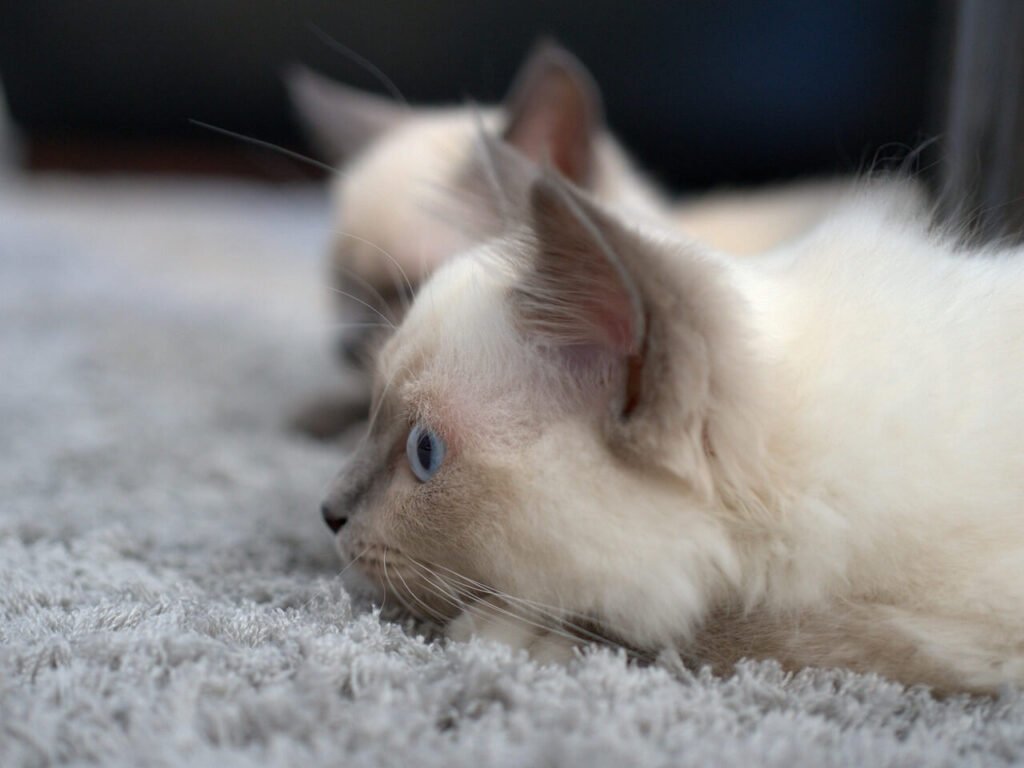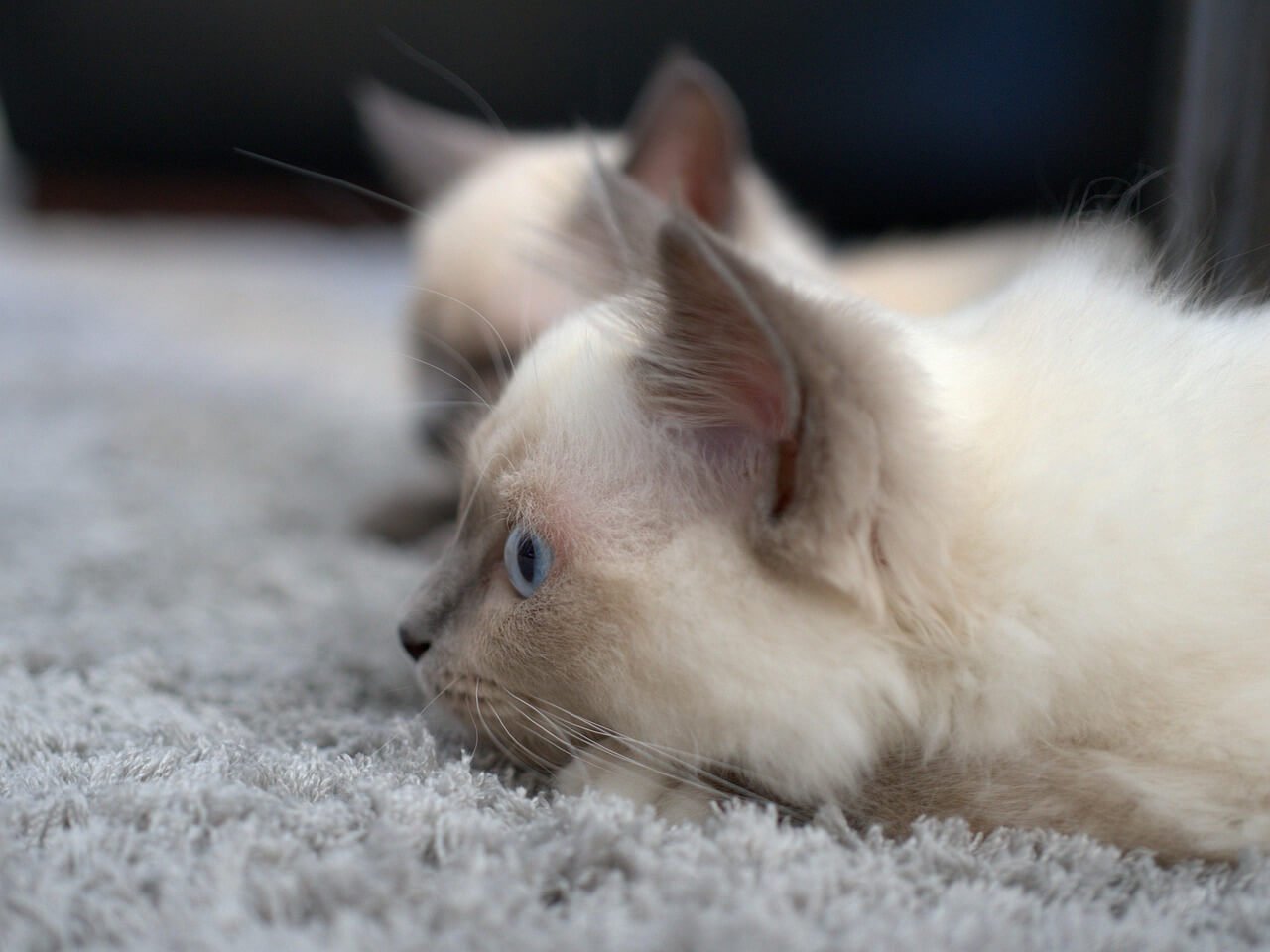Kitten Eye Discharge: Causes, Symptoms, and Care Tips
Welcoming a new kitten into your home is an exciting and joyful experience, but it also comes with responsibilities—especially when it comes to their health. One common issue that many kitten owners encounter is eye discharge. While some cases of eye discharge are harmless and resolve on their own, others may indicate underlying health concerns that require prompt attention. Understanding the causes, recognizing symptoms, and knowing how to care for your kitten’s eyes can help ensure they grow up healthy and happy. In this article, we’ll explore everything you need to know about kitten eye discharge and provide practical tips for keeping those precious peepers in top condition.
Why Does My Kitten Have Eye Discharge? Key Causes to Know
Eye discharge in kittens can stem from a variety of factors, ranging from minor irritations to more serious infections. Identifying the root cause is essential for determining the appropriate treatment. Here are some common reasons behind kitten eye discharge:
Viral Infections :
Feline herpesvirus or calicivirus can lead to conjunctivitis and watery eyes.Bacterial Infections :
Bacteria like Chlamydia or Mycoplasma can cause thick, yellow-green discharge.Foreign Objects :
Dust, dirt, or small debris trapped in the eye can irritate and cause tearing.Congenital Issues :
Some kittens are born with blocked tear ducts, leading to chronic discharge.Allergies :
Environmental allergens like pollen or cleaning products can trigger watery eyes.
Understanding these causes is the first step toward addressing the problem effectively. Always consult a veterinarian if you’re unsure about the source of the discharge.
What to Look For: Recognizing Signs of Eye Problems
Detecting eye issues early can make a significant difference in your kitten’s recovery. While some symptoms are subtle, others are more obvious. Here’s what to watch for if you suspect your kitten has eye discharge:
Excessive Tearing :
Watery eyes may indicate irritation or a mild infection.Crusty Build-Up :
Dried discharge around the eyes can signal a bacterial or viral infection.Redness or Swelling :
Inflammation of the eye or surrounding area is often a sign of infection.Squinting or Blinking Frequently :
Your kitten may squint to protect their sensitive eyes from pain or light.Cloudiness or Discoloration :
Changes in the appearance of the eye could point to a more serious issue.
If you notice any of these symptoms, monitor your kitten closely and seek veterinary advice if the condition worsens or persists. Early intervention is key to preventing complications.
Check this guide 👉Cat Eye Discharge Red: Best 7 Health Tips!
Check this guide 👉Cat Eye Drops for Conjunctivitis: Best 7 Expert Tips!
Check this guide 👉Understanding Cat Eye Cancer: Best 7 Expert Tips!

Common Causes of Eye Discharge | Symptoms to Watch For |
|---|---|
Viral infections | Excessive tearing |
Bacterial infections | Crusty build-up around the eyes |
Foreign objects | Redness or swelling |
Congenital issues | Squinting or blinking frequently |
Allergies | Cloudiness or discoloration |
How to Care for Your Kitten’s Eyes at Home
While professional veterinary care is essential for persistent or severe cases, there are steps you can take at home to support your kitten’s recovery. Proper care ensures their comfort and minimizes the risk of further irritation or infection.
Clean Gently with a Warm Cloth :
Use a damp, lint-free cloth to wipe away discharge without rubbing.Avoid Using Human Eye Drops :
Only use medications prescribed by your veterinarian.Keep the Environment Clean :
Remove dust, debris, and allergens from your kitten’s living space.Monitor Progress Daily :
Track changes in symptoms and report worsening conditions to your vet.Prevent Scratching or Rubbing :
Use an Elizabethan collar if your kitten tries to paw at their eyes.
By following these tips, you can create a healing-friendly environment for your kitten. Consistency and attention to detail are crucial during recovery.
Steps to Protect Your Kitten’s Eye Health
Prevention is always better than cure when it comes to kitten eye discharge. Taking proactive measures can significantly reduce the risk of your kitten developing this uncomfortable condition.
Regular Vet Check-Ups :
Schedule routine visits to monitor your kitten’s overall health.Maintain Hygiene :
Keep your kitten’s face clean and free of dirt or debris.Provide a Stress-Free Environment :
Minimize stressors that could weaken their immune system.Ensure Proper Vaccinations :
Vaccinate against feline herpesvirus and calicivirus to prevent infections.Limit Exposure to Sick Cats :
Avoid contact with other cats showing signs of illness.
These preventive steps can go a long way in safeguarding your kitten’s eye health. A little effort now can save you and your kitten from unnecessary discomfort later.
Red Flags: Knowing When to Visit the Vet for Kitten Eye Discharge
While some cases of eye discharge can be managed at home, others require immediate veterinary attention. Recognizing the signs of a serious issue can prevent complications and ensure your kitten gets the care they need. Here are some scenarios that warrant an urgent vet visit:
Severe Swelling or Bulging :
If your kitten’s eye appears swollen shut or bulges abnormally, it could indicate trauma or a severe infection.Persistent Squinting or Closed Eyes :
A kitten who keeps their eyes closed for extended periods may be in significant discomfort.Yellow or Green Discharge :
Thick, pus-like discharge often points to a bacterial infection that needs professional treatment.Changes in Behavior :
Lethargy, loss of appetite, or excessive hiding alongside eye symptoms may signal systemic illness.Visible Corneal Damage :
Scratches, ulcers, or cloudiness on the surface of the eye require prompt medical intervention.
If you notice any of these signs, don’t delay—seek veterinary care immediately. Early diagnosis and treatment can make all the difference in your kitten’s recovery.
Born That Way: Common Congenital Eye Problems in Kittens
Some kittens are born with congenital eye issues that can lead to chronic eye discharge. These conditions are typically present from birth and may require ongoing management. Here are a few examples of congenital problems to be aware of:
Blocked Tear Ducts :
A common issue where tear ducts fail to drain properly, causing constant tearing.Entropion :
A condition where the eyelid rolls inward, irritating the eye and leading to discharge.Microphthalmia :
Abnormally small eyes that may have reduced function or increased susceptibility to infections.Coloboma :
A developmental defect where parts of the eye are missing, potentially affecting vision.Persistent Pupillary Membrane :
A thin tissue over the pupil that can cause visual impairment if it doesn’t dissolve naturally.
Congenital issues often require specialized care, so consult your vet if you suspect your kitten has one of these conditions. With proper management, many congenital problems can be addressed effectively.
Boosting Health: How to Strengthen Your Kitten’s Defenses Against Eye Infections
A strong immune system is your kitten’s best defense against infections that can lead to eye discharge. By taking steps to support their overall health, you can reduce the likelihood of recurring eye issues. Here are some ways to boost your kitten’s immunity:
Provide a Balanced Diet :
Feed high-quality kitten food rich in essential nutrients like vitamins A and E for eye health.Ensure Proper Hydration :
Encourage water intake to keep their body—and eyes—hydrated and healthy.Limit Stress :
Create a calm environment to help their immune system function optimally.Regular Deworming and Parasite Control :
Prevent parasites that can weaken their immune system and lead to secondary infections.Encourage Play and Exercise :
Physical activity promotes circulation and supports overall well-being.
By focusing on your kitten’s overall health, you’re also safeguarding their eyes. A strong immune system lays the foundation for a happy, healthy life.
Frequently Asked Questions About Kitten Eye Discharge
Is eye discharge normal for kittens?
Mild discharge can be normal, but excessive or discolored discharge often indicates a problem.
Can I treat my kitten’s eye discharge at home?
Mild cases can be managed at home, but persistent or severe symptoms require veterinary care.
What should I do if my kitten’s eye looks cloudy?
Seek immediate veterinary attention, as cloudiness may indicate a serious issue.
How long does it take for kitten eye discharge to clear up?
With proper care, mild cases typically improve within a few days; infections may take longer.
Can allergies cause eye discharge in kittens?
Yes, environmental allergens can lead to watery eyes and mild discharge.
Final Thoughts: Prioritizing Your Kitten’s Eye Health
Kitten eye discharge is a common issue, but it shouldn’t be ignored. By staying informed about the causes, symptoms, and treatments, you can ensure your furry friend receives the care they need. Whether it’s through regular cleaning, preventive measures, or timely veterinary visits, your efforts will go a long way in protecting your kitten’s vision and overall well-being. Remember, healthy eyes are a reflection of a happy and thriving kitten. With your love and vigilance, your little one will grow up to enjoy many bright and beautiful days ahead.
Do Cats Have Taste Buds? Best 7 Expert Tips! – Discover how cats experience flavors and why their taste is so unique.
Do Dogs Have Taste Buds? Best 7 Expert Tips! – Discover how dogs experience taste, their preferences, and what it means for their diet and health.
Can Cats Taste Sweet? Best 7 Expert Tips! – Discover why cats can’t taste sweetness, how it affects their diet, and tips to keep them healthy and happy.
Can Dogs Taste Sweet? Best 7 Expert Tips! – Discover how dogs perceive sweetness, which foods are safe, and tips to manage their sweet cravings responsibly.





